Players can’t demand more money then run game into the ground
THIS time last year players were demanding more of a share in the NRL’s revenue. They wanted to be treated like businessman contributing to the game. The NRL is a business that needs to grow and Bulldogs players’ behaviour kills us as a game.
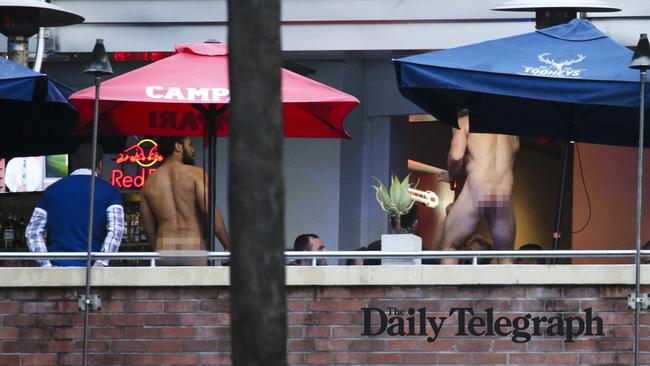
Opinion
Don't miss out on the headlines from Opinion. Followed categories will be added to My News.
- Proud to be a Bulldog? Not even close
- Beattie: Bulldogs ignored our warning
- A history of Mad Monday mayhem
- Buzz: NRL needs to come down hard
NOBODY knows how much Neil Diamond’s Sweet Caroline, accompanied by several nude dancing Bulldogs, and their little bulldogs, has cost the game.
Australian Rugby League Commissioner Peter Beattie was in Perth on Tuesday to meet Western Australian Premier Mark McGowan and three other ministers.
Beattie was asking for money, promising to bring rugby league to Perth if they delivered the cash.
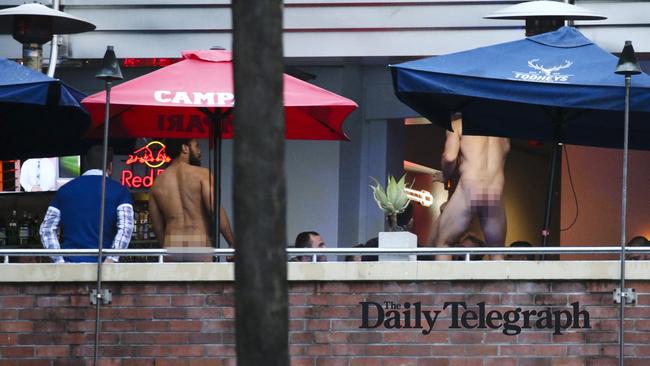
“It’s embarrassing,” Beattie said. “You just look like bit of a goose.”
The Bulldogs went page one with their mad Monday antics at the Harbour View Hotel, one of Sydney’s great pubs.
It followed the typical course.
Outrage at the players and in defence of the players followed in equal parts.
It showed once again how the narrative gets hijacked, taken away from all common sense.
So before we go further let’s take the outrage all the way down.
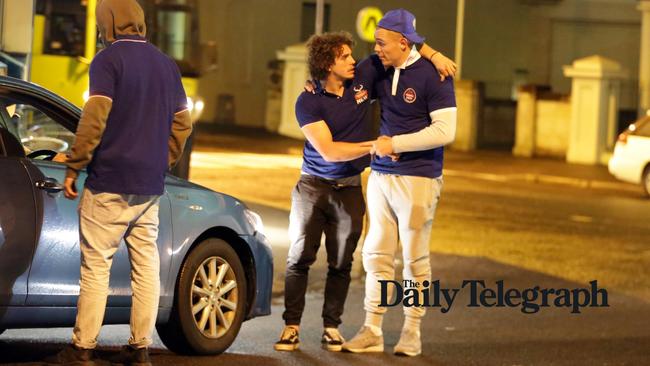
Too often the conversation gets reduced to a debate about the players’ right to celebrate their season (in this case, a solid 12th placing), and the media’s right to report it, as if they are the only two sides.
Both are highly emotional but irrelevant arguments. There are bigger considerations.
This time last year the NRL, in the wake of a $2.1 billion broadcast deal, was negotiating a Collective Bargaining Agreement with the Rugby League Players Association.
The players drove hard for a share in the game’s revenue.
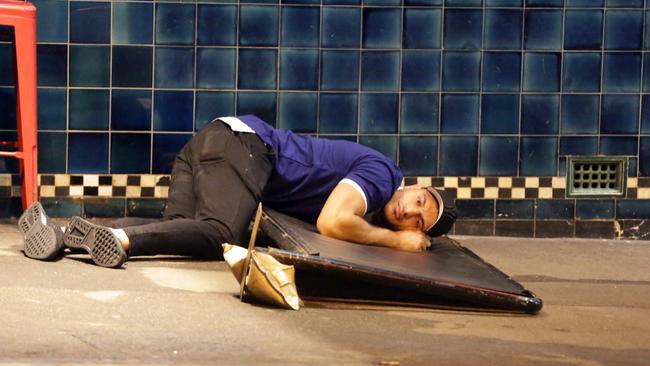
James Maloney, a RLPA board member, set the tone early.
“We want to all be incentivised to grow the game,” said Jimmy the Gent.
“If we’re genuine partners in the game and we’re getting a percentage of the revenue then it’s in our best interests to grow the game and make it better. It’s not about trying to get anything ridiculous and reasonable. It’s just about getting value, I suppose, for what we contribute to the game.”
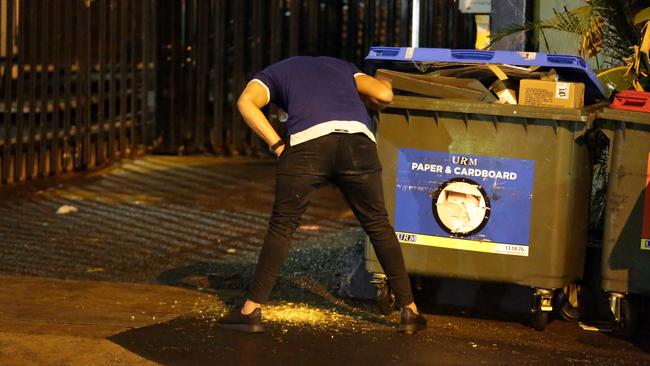
The players got their revenue share, a massive 29.5 per cent of forecast revenue. They also split four ways, with equal amounts to them, the NRL, the clubs and grassroots, all non-forecast revenue.
The players asked to be treated as businessmen during the negotiation and they were treated, and now paid, that way.
A basic fundamental of business, though, is people don’t pay you more and expect the same.
So when the NRL agrees to pay the players more, for a game driven by public reputation, its expectation was the players would work with them to promote the game in a positive light.
That cannot be avoided.
The players are in an industry that has public profile.
Two days ago Brisbane captain Darius Boyd complained the game was no longer fun because of the “negative” media, which prompts the question, what is negative?
A story about bad refereeing? A team’s poor season? An insolent player refusing to get off the bus until he got paid?
Negative does not mean unfair.
Getting naked in a pub while a teammate grabs a another teammate on the little bulldog is self-inflicted.
But unable to defend that behaviour, the argument shifts to the media’s right to report it and this contrived desire to be negative.
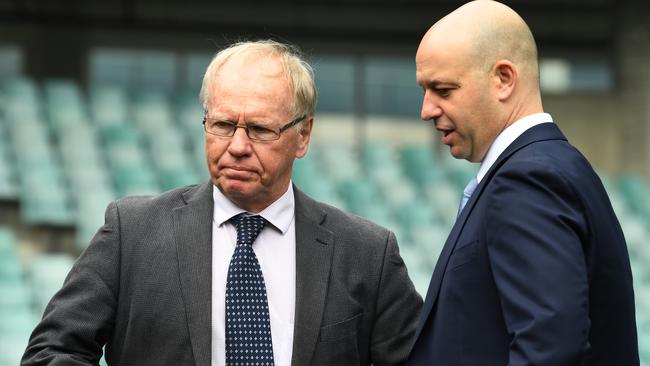
This game draws more than half its annual funding from the media and benefits by media coverage promoting it.
When players sign a contract to play in the NRL they are accepting a life where more than their performance on the field is fodder.
Like Hollywood, Canberra politics or life in the NFL, everything is copy. Like it or not it is part of the deal. The game, after all, has to find Jimmy Maloney’s money from somewhere.
The RLPA is apparently no help.
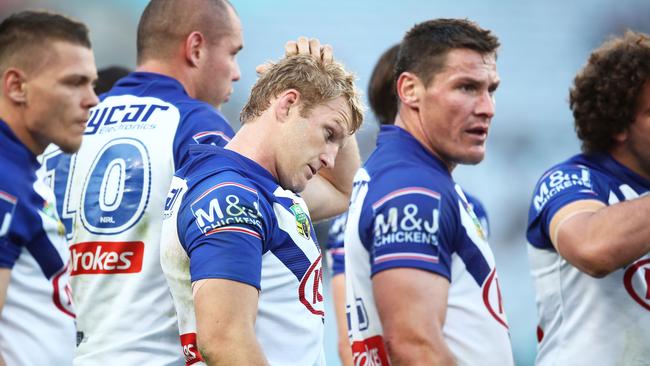
The RLPA issued an embarrassing statement that quickly descended into gibberish.
“We share the disappointment of other stakeholders regarding the impact that these incidents can have on the perception of the game and players …” began RLPA chief executive Ian Prendergast.
It said everything it would be expected to say without ever addressing the issue.
If the RLPA does not understand the professional standards required for a game that depends on its public image — “they are entitled to let their hair down at the end of a tough year” — what hope is there?
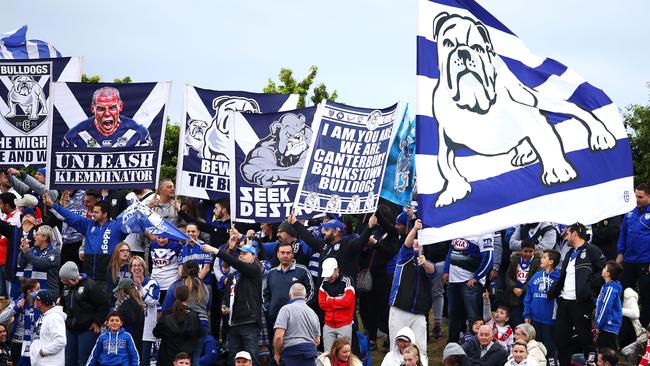
The Bulldogs had a tough year? Talk to their supporters.
Over the next five years NRL players will pocket $782.8 million.
That is before a dollar is invested in grassroots. Their funding comes from a percentage of the money left over.
Beattie has spent the past two days in Perth trying to grow that NRL funding pool.
Then he walked into this.
“It reduces the amount of money that comes to the game, that comes from sponsors, from Government allocation,” he said.
“That means less money for clubs, less money for players.
“It hurts everybody.”
The NRL has never done a costing for how much player related incidents have cost the game over the years. Players believe one sponsor leaves and another enters and life carries on evenly.
There is no realisation the game could have both, which means they could spend both. The money would run into tens of millions.
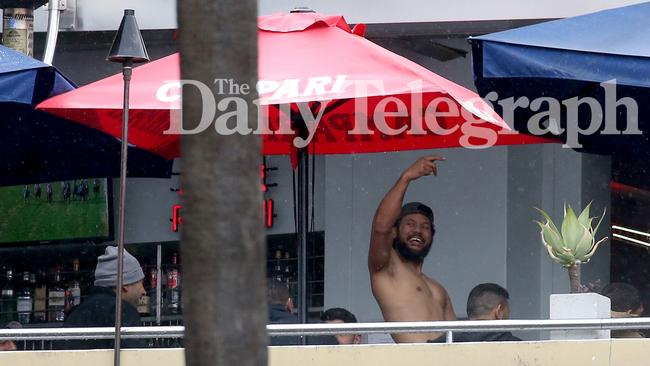
The NRL is about to launch its women’s competition this weekend. The NRL Women’s Premiership was fast-tracked after sponsor Harvey Norman threatened to withdraw all its NRL funding if it did not make the game more female friendly.
That means the money in the men’s pocket.
“We have to attract women to support this game and we know women hate this behaviour,” Beattie said.
“That’s not being sexist. It kills us as a game.”
Get 3 months free Sport HD + Entertainment on a 12 month plan and watch every game of every round of the 2018 NRL Telstra Premiership on FOX SPORTS. T & Cs apply. SIGN UP NOW >
